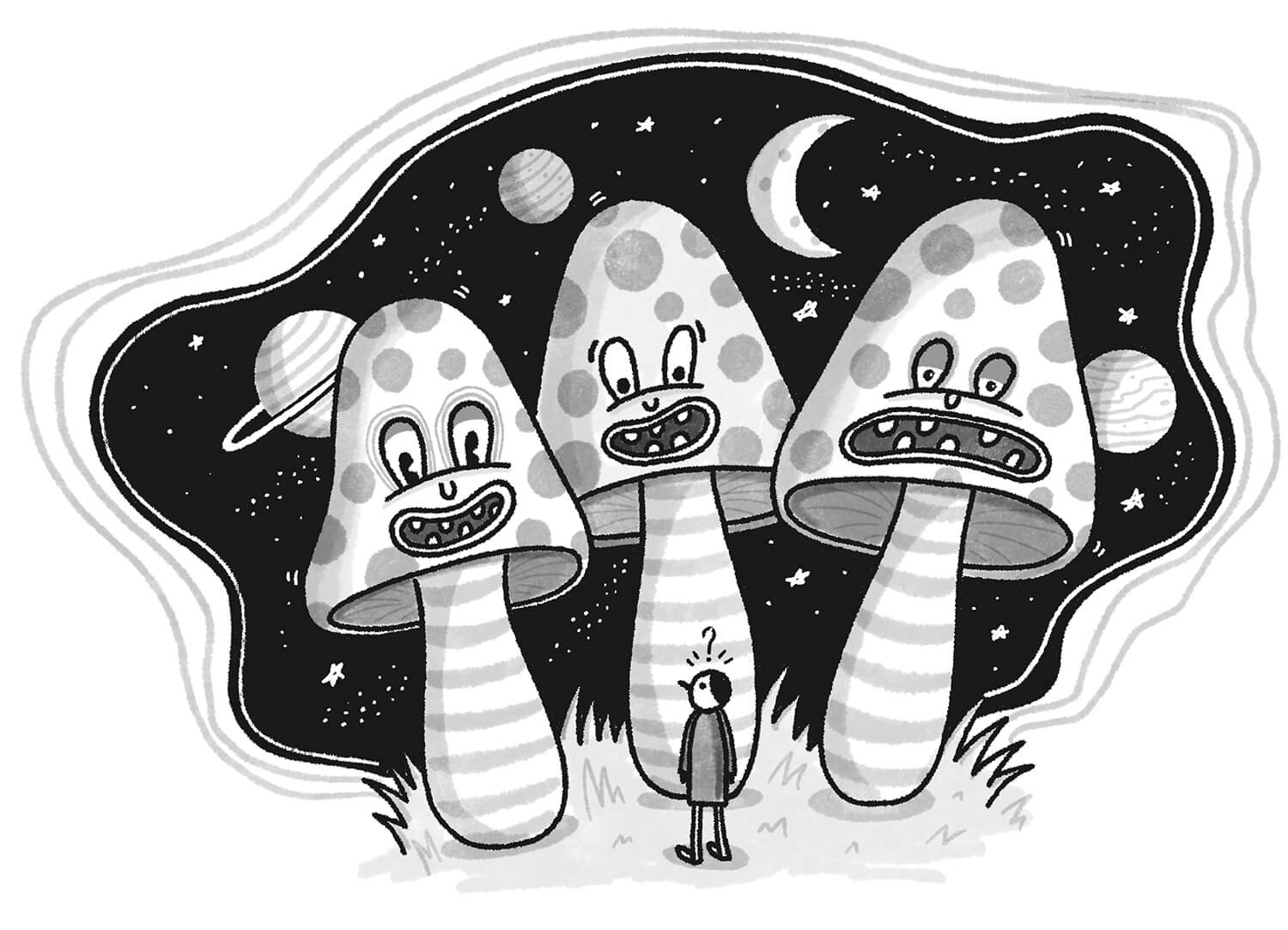What if a natural treatment for addiction and PTSD was available? And what if that treatment was based on a drug that’s, well, currently a controlled substance?
The people at the top of the University of Alberta’s department of psychiatry have launched a business, PsiloTec, that is betting big that psilocybin will be part of a reliable therapeutic model for those struggling with mental health and addiction issues. They are working to finish a mushroom-growing operation and lab in Leduc that’s in excess of 20,000 square feet.
At the top of PsiloTec is Dr. Peter Silverstone, the interim chair of the department of psychiatry. Handling the operations of the company is Scott Phillips, the assistant chair of the department and a Top 40 Under 40 alumnus.
“What gets me out of bed in the morning is what I can do to help individuals in need,” says Phillips. “There are people who can’t get out of their beds in the morning because of what’s happening in their lives.”
During the great pandemic pause, Phillips spent a lot of time at home — and that meant time to study and learn about new things. And he was seeing more and more evidence that “magic mushrooms” (professionals like Phillips bristle at the term, preferring to focus on the active compound, psilocybin, instead) were about a lot more than going on psychedelic trips — that there was growing research into their therapeutic benefits.
Silverstone and Phillips brought on partners from Calgary-based investment dealer Lightyear Capital Inc., as well as other researchers, including fungi expert James Scott from the University of Toronto.
Silverstone said he expects that health authorities in Canada and Europe will begin approving psilocybin for therapeutic use within the next one to three years. For the American FDA, there could be a lengthy approval process, depending on clinical trials.
Those trials could include having referred patients using psilocybin to treat addictions (microsdosing) or having them go on curated “trips” to help deal with PTSD issues, including those who are having a hard time recovering from the stress caused by the COVID-19 pandemic.
